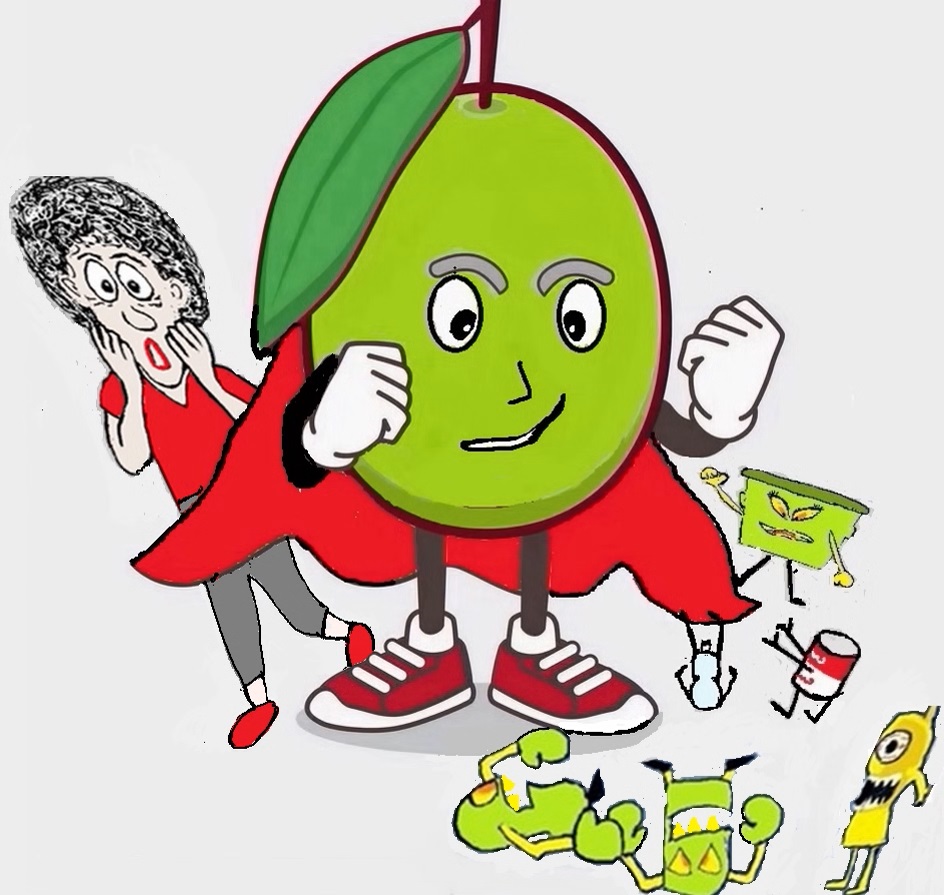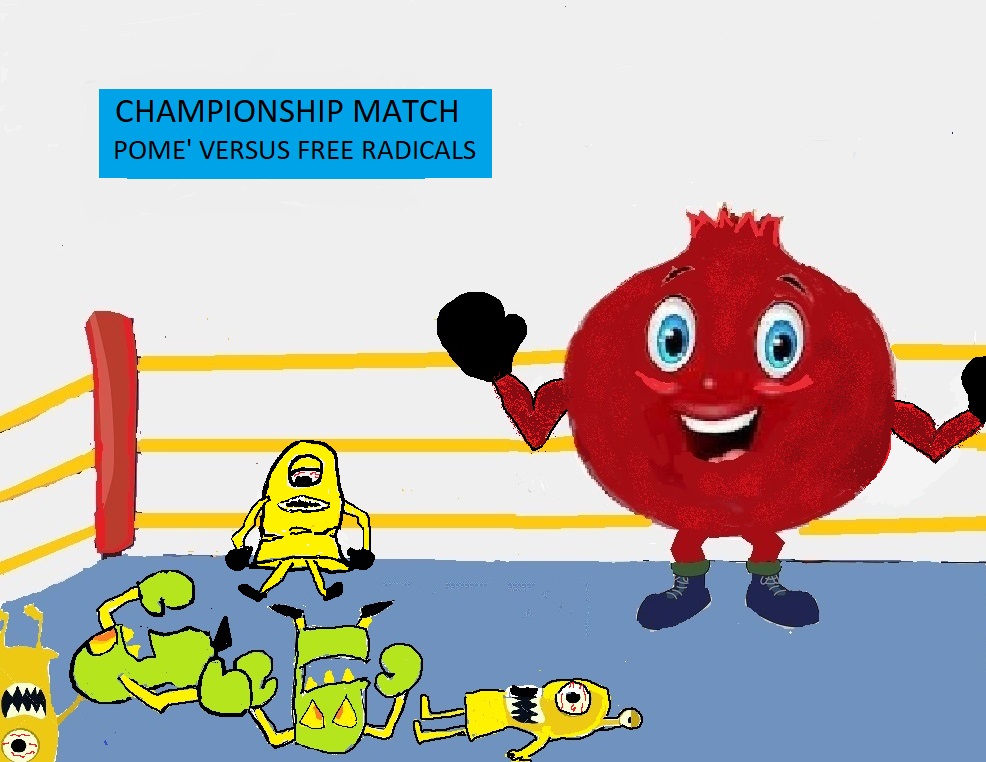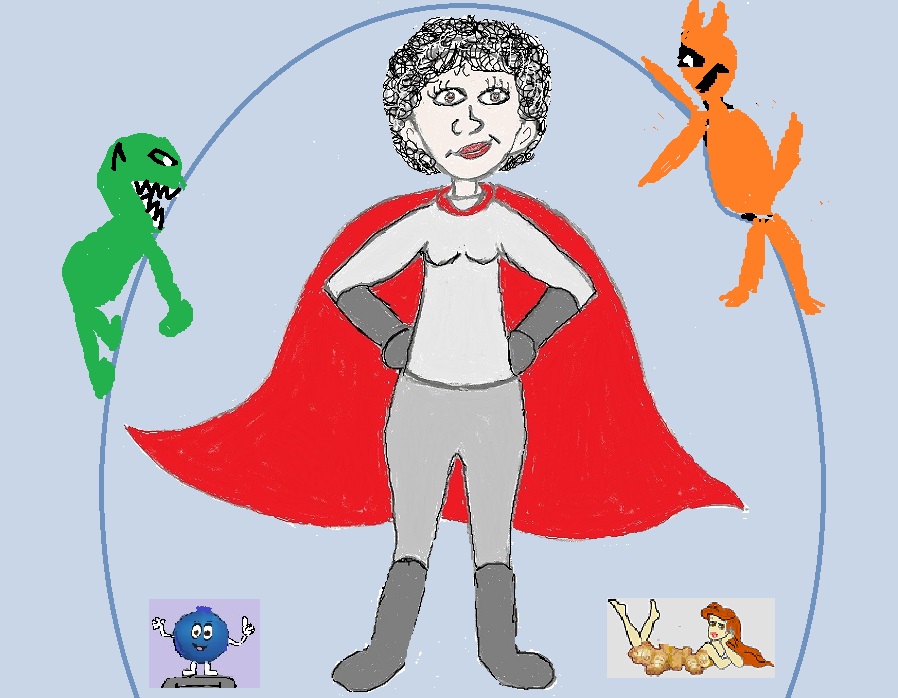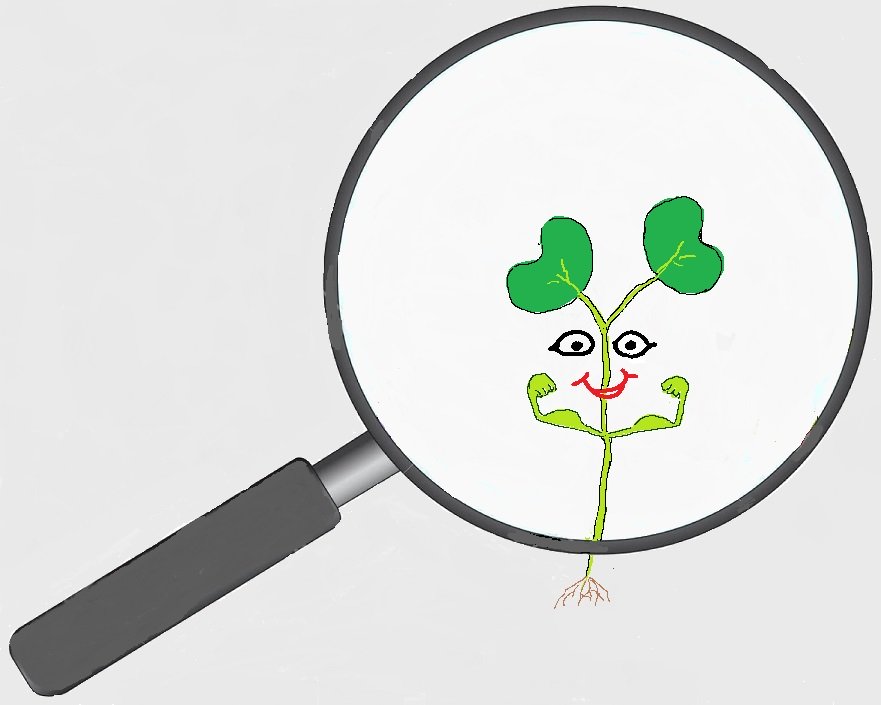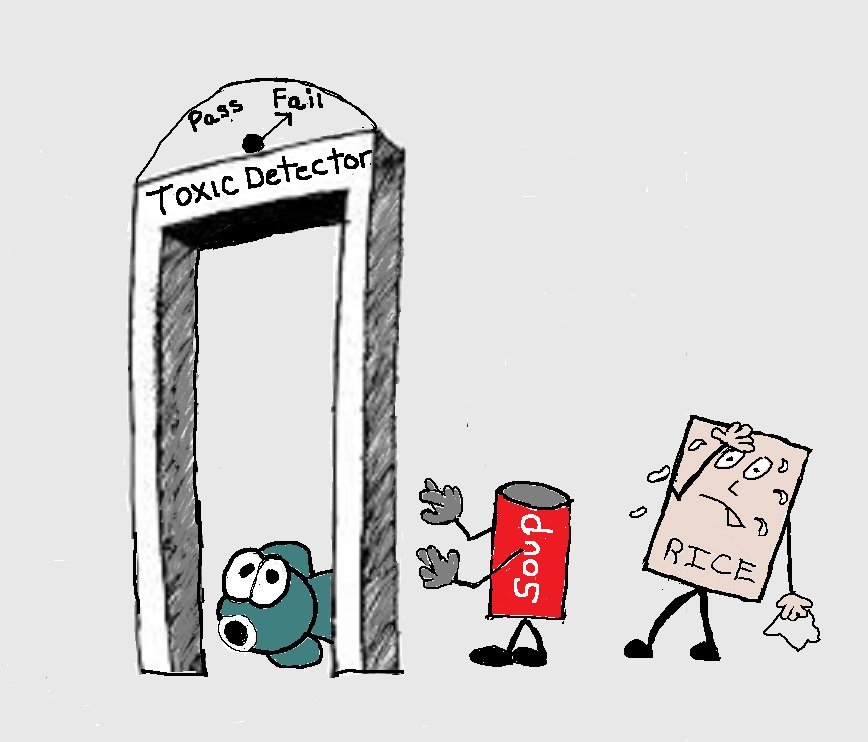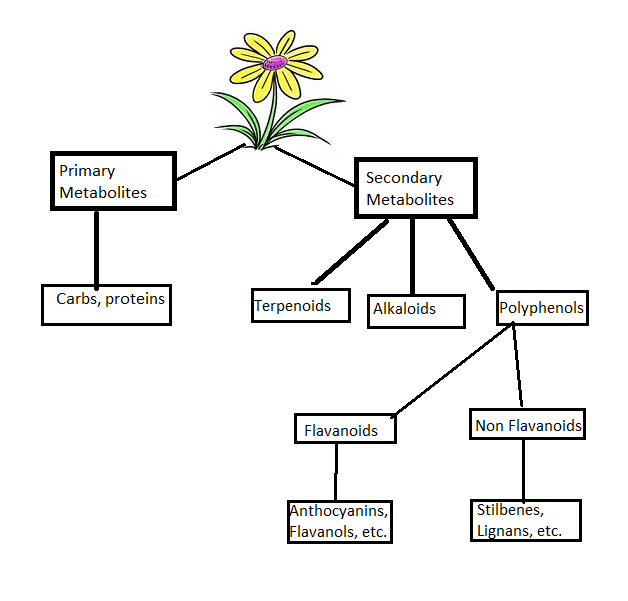- Home
- Polys & Superfood
Superfood Benefits For Your Health

Incorporating superfood benefits into your diet is a crucial step in protecting you from toxic chemical exposure. The other vital step is of course, reducing your exposure through lifestyle changes.
Toxic chemical exposure harms your health and causes diseases. There are many ways you can reduce this exposure. BUT, there is a lot of toxic chemical exposure that you have no control over. That’s where superfoods play a role.
A diet that includes superfood benefits is both health-promoting and disease-preventing. Because they are a dense source of antioxidants, minerals, vitamins and other nutrients, superfoods help your body deal with the effects of toxic chemical exposure in a lot of different ways.
What Are Superfoods?
In the scientific community superfoods are called Functional Foods. In general, superfoods (a.k.a Functional foods) play an important role in maintaining a healthy lifestyle and reducing the risk factors of various diseases. Superfoods are foods that also help your body function properly.
The Functional Food Center/Functional Food Institute defines functional foods as “Natural or processed foods that contain biologically-active compounds; which, in defined, effective, non-toxic amounts, provide a clinically proven and documented health benefit utilizing specific biomarkers, to promote optimal health and reduce the risk of chronic/viral diseases and manage their symptoms” Martirosyan D.M., Ekblad M. Functional Foods Classification System: Exemplifying through Analysis of Bioactive Compounds. Functional Food Science 2022; 2(4): 94-123. DOI: https://www.doi.org/ffs.v2i4.919
Examples of superfoods include blueberries, beets, honey, microgreens and sprouts, pomegranate, goji berry, chickpeas, walnuts, almonds, cocoa, broccoli, spinach, Kefir, ginger, and bee products like honey, royal jelly, waxes.
The benefits of these superfoods come from the small amounts of chemicals called bioactive compounds, found in these foods. Bioactive compounds have actions in the body that promote good health. That’s why they are being studied in the prevention of cancer, heart disease, and other diseases.
In fact, experimental studies have found convincing evidence that bioactive compounds have antioxidant, antiatherogenic, anti-inflammatory, antimicrobial, antithrombotic (reduces the formation of blood clots), cardioprotective, and vasodilator properties. These properties can protect you against cancer, cardiovascular disease, liver disease, metabolic diseases like diabetes and neurodegenerative disorders.
Examples of Bioactive Compounds
The major classes of bioactive compounds are (1) terpenes and terpenoids (approximately 25,000 types), (2) alkaloids (about 12,000 types), and (3) phenolic compounds (aka Polyphenols) (about 8000 types).
Specific bioactive compounds found in superfoods include polyphenols, glucosinolates, carotenoids, terpenoids, alkaloids, saponins, vitamins, and fiber. Polyphenols are one of the most abundant classes of bioactive compounds found in plant-based foods.
You’ve probably heard of many of the polyphenols that provide superfood benefits. Examples include, curcumin, resveratrol, quercetin, sulforphane, and anthocyanin.
Curcumin - found in the spice turmeric as well as other sources has been studied for its antioxidant and anti-inflammatory properties.
Resveratrol - found in grapes and pomegranates benefits vascular function, immunity and your gut microbiota.
Quercetin – found in apples, has potent neuroprotective properties in neurodegenerative diseases.
Sulforphane - found in cruciferous vegetables like broccoli, cabbage and kale protects you from oxidative stress caused by excess free radicals and cancer.
Anthocyanin – found in blueberries and eggplants have been shown to lower blood pressure and reduce heart attacks.
Superfood Benefits in a Toxic World
There’s a lot of scientific evidence that eating superfoods will improve and protect your health. That’s reason enough to add them to your diet.
But superfoods are even more vital because you're exposed every day to a barrage of toxic chemicals. Some exposure you can reduce and some you can't.
And exposure to toxic chemicals is linked to:
- Oxidative stress (excess free radicals)
- Chronic Inflammation
- Diabetes and other Metabolic Disorders
- Cancer
- Liver damage and disease
So first, you need your body to be able to detox toxic chemical exposure efficiently. That includes breaking down and eliminating them and fighting the effects of the exposure.
Now, the typical detox program, like a colon cleanse or juice fast, is a short-term solution with short-term benefits. And that's only if the program you're using actually removes some toxins from your body.
Second, your body also needs to fight the increase in free radical damage caused by toxic chemical exposure. That's why the antioxidants in superfoods are so important.
And third, superfood benefits also include the specific actions of bioactive compounds that also protect you from disease.
In other words, the best detox approach, besides reducing your exposure to toxins, is to give your body's detox system and antioxidant defense system what they need to function well and protect you from disease.
By including superfood benefits into your diet, you basically have a life long detox plan with long-term health benefits.
1. Supercharges Your Detox System
Once you inhale, absorb and ingest toxins they are distributed throughout your body. Your body’s detoxification machine, the liver, then starts the process of breaking down these harmful substances by a complex series of chemical reactions. Your kidneys, lungs, GI tract and skin also play a role in getting rid of toxins.
When functioning properly, your liver filters and removes toxins from the blood and changes (metabolizes) fat-soluble toxins into water-soluble forms that can be excreted from the body. In other words, the liver takes nasty things and turns them into a form you can get out of your body. That doesn’t mean that it’s a less-toxic form, but just a form that the body can get rid of. In fact, in some cases the new form is more toxic than the original toxin.
Detoxification by the liver is a two-step process that can become overwhelmed by toxic chemical exposure. Plus, as you get older your detox system slows down.
You want your body to break down these chemicals and get rid of them as quickly as possible. Many toxins do more damage the longer they hang out in your body. And in the toxic world we live in that makes your detox system really important.
But, it can become overwhelmed by exposure to toxins. When this happens it doesn't function properly. This can cause or make worse a range of chronic conditions and diseases. Plus, as you get older your detox system slows down.
Certain superfoods provide support for your detox system. For example, Glutathione is a protein produced by your body and found in all your cells. It plays many important roles in your body.
It functions as:
- A powerful antioxidant
- A key player in the function of your immune syste
- A master detoxifier
For example, sulforaphane is a bioactive compound that makes the enzymes more active and it also stimulates your liver to make glutathione. And one of the superfood benefits of broccoli sprouts is its high level of sulforaphane. In fact, it contains much, much higher levels than mature broccoli.
2. Fights Free Radicals
Your body constantly creates toxins, called free radicals. They are created while performing everyday body functions like metabolism and cell respiration (provides the energy for metabolism).
Free radicals can damage and kill cells in your body. That’s why your body has an antioxidant defense system designed to battle them. This system produces antioxidants like glutathione.
But, your exposure to toxic chemicals increases the production of free radicals. And, constant exposure to toxins like BPA and phthalates, pesticides, PFASs (found in stain and stick resistant products), nanoparticles and toxins in the air can overwhelm this system.
When your body produces more free radicals than it can handle it creates an imbalance. This imbalance, caused by too many free radicals running rampant through your body, creates oxidative stress.
Oxidative stress is linked to numerous health issues, including chronic inflammation, ---
Bottom line - Free radicals are toxic to your body and toxin exposure increases the free radicals in your body. If antioxidants are lacking and toxin exposure is high, toxic chemicals become far more dangerous to your health.
Antioxidant's protect you by destroying free radicals and reducing inflammation. The two sources of antioxidants are the ones your body makes, and the ones in superfoods. That's why one of the most important of the superfood benefits is their antioxidant activity.
3. Protects You From Disease
Besides providing your detox system what it needs to break down and eliminate toxic chemicals and reduce oxidative stress, superfoods can also help protect you from diseases in other ways.
For example, blueberries have anti-diabetic health benefits. Both animal and human studies have found that eating blueberries improves insulin resistance and glucose tolerance.
Anthocyanins in blueberries have also been studied for their role in affecting fat metabolism and deposition in different body tissues, including your liver. They’ve been found to reduce fat accumulation in your liver and fight oxidative stress and liver inflammation.
And ginger is a powerful antioxidant, an anti-inflammatory and has anti-diabetic and anti-obesity effects. It also protects your gut and liver and has cancer prevention properties.
The anticancer benefits of ginger are due to its ability to cause cancer cell death, and reduce cell growth, cell division and survival.
Adding Superfoods To Your Diet
In the Superfood Benefits Setion of Nontoxic for Health You'll find lots of research info on superfoods, their benefits and how to incorporate superfoods into your daily diet.


